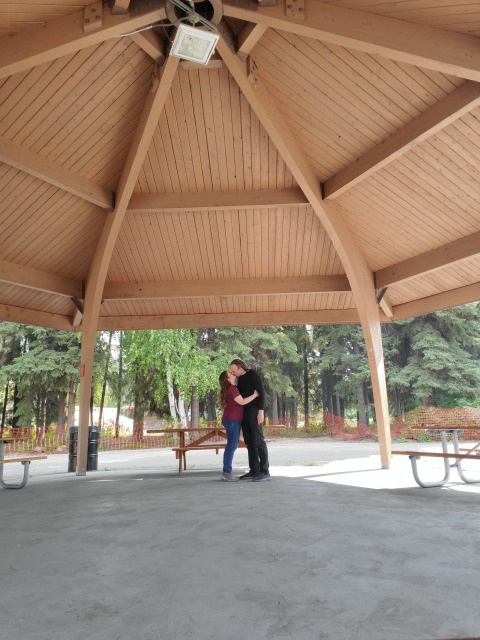I have not been brilliantly attentive to my last few books due to the whole 'new obsession' situation, but here they are anyway:
Bagthorpes v. the World by Helen Cresswell (1979). Picked up from a box of random free stuff left outside someone's house to be got rid of. The Bagthorpe saga (this is the fourth of ten books; I correctly guessed it wouldn't be sufficiently continuity-heavy to need reading in order) seems to be basically a wacky 70s sitcom in book form, featuring the adventures of a variously eccentric middle-class English family. In this book financial worries lead them to attempt to become self-sufficient, while they also have to manoeuvre for an inheritance from the eccentric great-aunt and deal with the five-year-old cousin's dedication to her 'death and funerals' phase. It's funny but not brilliant; it made decent enough reading during stressful travelling, which is what I did, but I won't seek out the rest of the series.
King Lear by William Shakespeare (c. 1606). Whenever I watch or read a Shakespeare play I enjoy the brilliant intricacies of language while probably missing about 90% of them, and then decide I'll have to think about it for a bit before forming proper opinions. Perhaps I should have watched a performance before reading; my mother has recommended
the film with Laurence Olivier, and I will watch it at some point but see above re. I can only watch one thing at the moment. As it is, I thought the tragic ending was beautiful ('
And my poor fool is hanged. No, no, no life!/Why should a dog, a horse, a rat have life/And thou no breath at all? Thou'lt come no more/Never, never, never, never, never.'— ;__; ), and I was interested to read in R. A. Foakes's introduction to the Arden edition that a) while, as usual with Shakespeare's plays, the story of King Lear was a previously existing one which he adapted, his ending is different from that of the previous versions and b) between the late seventeenth and mid-nineteenth centuries virtually all productions used a rewritten/bowdlerised version of the play which replaced Shakespeare's ending with a happier one. Clearly the ending is an important matter! I was also puzzled by a passage where Shakespeare uses the word 'choughs' and Foakes says in a footnote that it means 'jackdaws': the scene is set on the cliffs of Dover so I thought it seemed likely that Shakespeare did mean choughs (
Pyrrhocorax pyrrhocorax), but Wikipedia, citing Mark Cocker and Richard Mabey who are probably reliable sources for this sort of thing, agrees that 'chough' formerly meant 'jackdaw' (
Coloeus monedula). But that's also puzzling because I have heard both birds and it seems to me obvious that 'chough' is better onomatopoeia for
P. pyrrhocorax and 'jack' for
C. monedula. Hmmm.
Metal from Heaven by August Clarke (2024). Set in a world undergoing a fantasy Industrial Revolution based on ichorite, a mysterious substance which causes a mysterious disease in the children of people who work with it; our narrator Marney Honeycutt (which rather inappropriately reminded me of Lucy Honeychurch) is one of the first to be afflicted, and also her entire family were massacred when the owner of the factory where they worked decided to put down a strike the really thorough way when Marney was twelve. She escapes and ends up being adopted by a gang of bandits who've made themselves an amazing socialist bandit paradise by murdering a local aristocratic ruler, pretending to all the other aristocrats that he's just really reclusive and taking over his house and land; meanwhile Marney plots how she's going to get revenge on that factory owner. Also, almost everyone is a lesbian. I thought various parts of the plot probably wouldn't stand up to thorough scrutiny, and there were some seriously questionable decisions made (e.g., if your entire plan for the future of your bandit paradise depends on the continued survival of one person, I think you
can not let her go out on highly dangerous bandit raids, actually); I found the language often careless and sometimes jarringly modern for the fantasy Industrial Revolution; most of the sex scenes made no emotional sense to me (I don't want to overstate this as a flaw, I'm sure it was important and meaningful for the author and for the right kind of readers, but I was not one of them). However, I did like the book on the whole, and I think it's very good, largely for two reasons: 1) the worldbuilding is thoughtful and really interesting, especially in portraying a range of different religions, views of the world, naming systems and concepts of sexuality and gender, and in how these things vary by class; and in the eventual discovery of what ichorite really is; and 2) it is absolutely committed to being exactly what Clarke wants it to be, no holding back at all, and I respect them for that. Also the way it's narrated, with Marney speaking in first person to a specific other character, is great and used to good effect, and the ending is weird and amazing. I did guess the first big twist as soon as we found out the relevant backstory fact about the character in question, but I had no idea what was coming next.
I've just collected a 600 page book on the history of ballet from the library, so that's something more relevant to read next.







